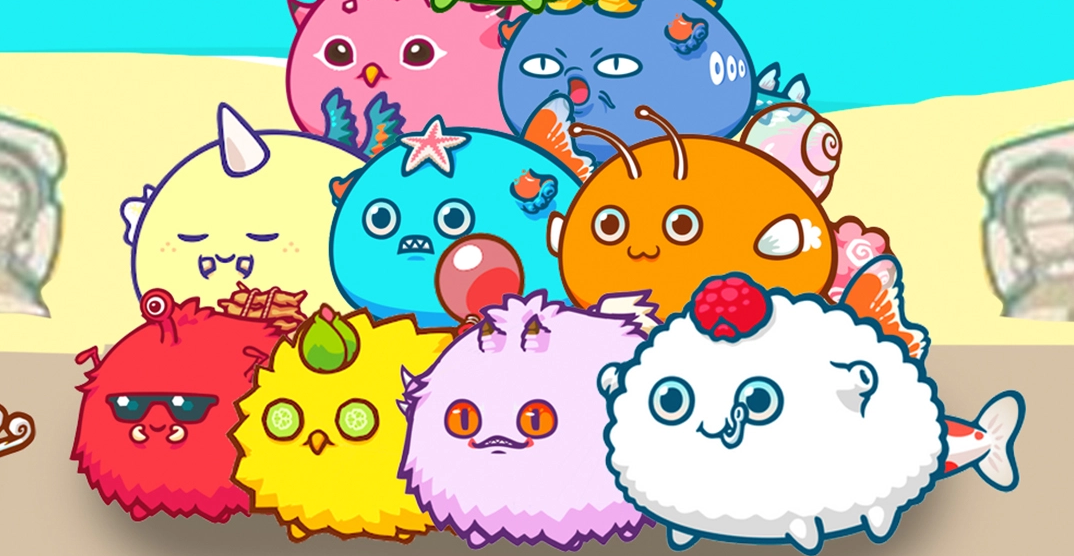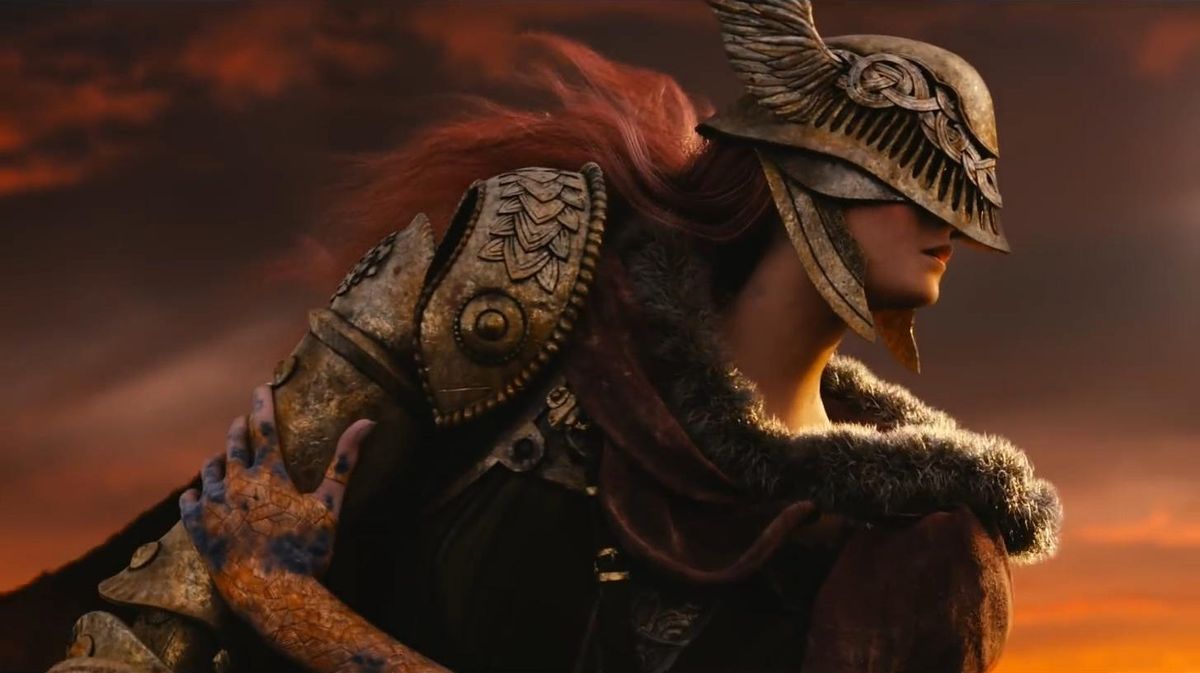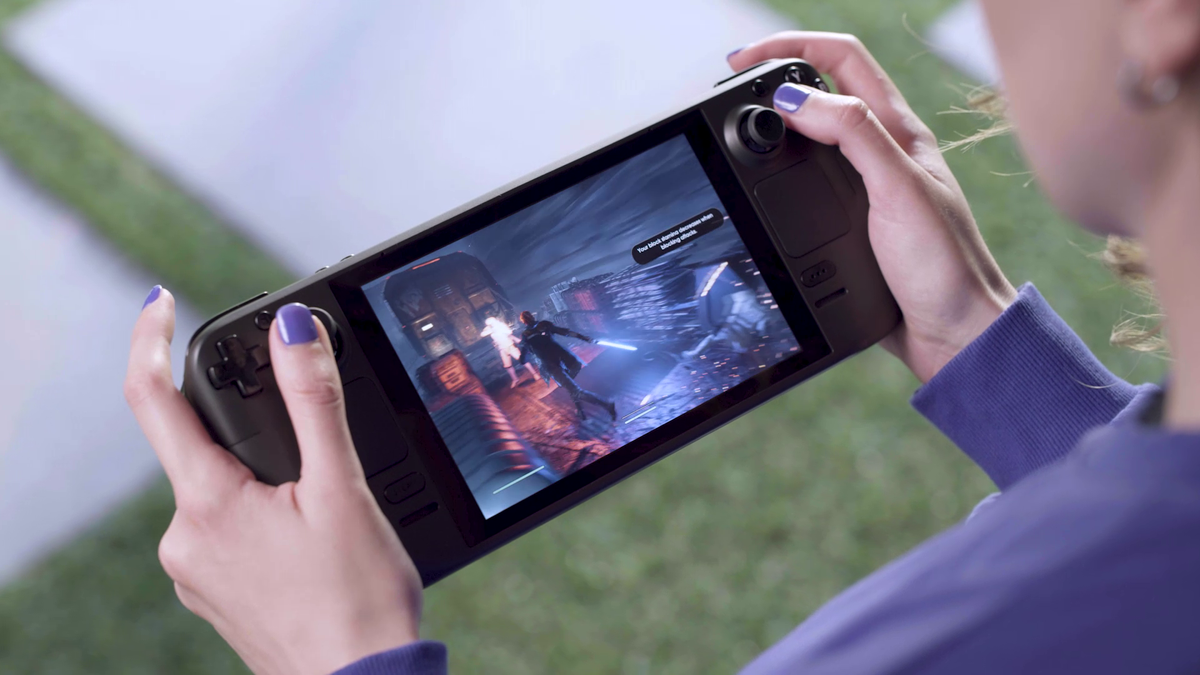I’m confident that I’ll know inner peace again one day, and that day will come when I can go at least a week without hearing about NFTs. Right now it’s hard to go a single day without some NFT chatter popping up: a new tech company rolling out NFT avatars, a videogame executive bullish on NFTs and the metaverse, a startup angel investor posting a word salad tweet thread about how they’ll change art as we know it.
For the biggest buzzword in tech today, there’s little real substance to NFTs so far—at least when it comes to gaming. Discord walked back NFT plans after a very loud community outcry. Ubisoft‘s first NFTs saw it merely dipping in a toe with one of its least popular games. Konami basically sold some animated gifs.
And once you look at the games built around cryptocurrency and NFTs that are playable now, there’s even more reason to be skeptical. If this is the future of gaming, we’re going to be spending a lot less time playing games and a lot more time trying to sell each other stuff.
Okay, what’s an NFT again?
NFTs, or non-fungible tokens, are meant to be one-of-a-kind digital goods. Money is fungible, meaning it can be substituted for another identical item; one $5 bill is the same as another. The whole pitch for NFTs is that they’re unique digital items. A token, as defined by NFT marketplace OpenSea, is “a digital certificate stored on a publicly verifiable distributed database” called a blockchain. The information contained in that certificate or “smart contract” is what makes an NFT unique.
In practice, the distinction between an NFT’s certificate (that bit of data that says “You own this digital good”) and the digital good itself (a drawing of an ape, most commonly) has been messy. If you see people joking about NFTs being right-clickable JPEGs, this is what they’re talking about—despite the certificate saying you own a one-of-a-kind digital good, someone can still easily make a copy of the image it represents.
Critics of NFTs point out that NFTs are harmful to the environment because blockchain transactions are mostly done via a mechanism called “proof-of-work” tied to cryptocurrency mining—essentially, computers doing math problems to verify transactions. This consumes a lot of energy. Ethereum, the underlying cryptocurrency most NFTs are currently based on, will supposedly be transitioning to a more energy efficient “proof-of-stake system,” but it hasn’t happened yet.
That tension between an NFT’s proof of ownership and the JPEG anyone can copy is a bit different when we’re talking about videogames, though. The pitch is that NFTs could be used to represent unique in-game skins or items that you could own, and that it could then be possible to sell those items to other players or even carry them between games.
So… how would that work?
Are NFTs basically just DLC?
For games, how is an NFT different from any other microtransaction?
The key distinction between an NFT and the kind of downloadable content we’ve been buying in games for years is the blockchain.
When you buy a skin in a game today, the record of your ownership is tied to an account: It could be specific to that game, or a bigger one like an account you use for all Ubisoft games. The game developer has complete control over how that DLC works: how it authenticates your ownership, the server you download it from, and how the item is implemented in the game. The way a skin or a health potion is represented in one game may be totally different in another, depending on how they were programmed.
NFTs introduce an external element. Hypothetically, rather than your Ubisoft account data telling Rainbow Six Siege that you own a certain Hibana skin, the game would find out what you own by checking with an external blockchain. If you wanted to, you could transfer that skin—or, more accurately, the NFT that says you own it—to someone else, and Siege would then be able to check the blockchain to see that they now own it, and you don’t. Many of the pitches for NFT games are described as “play-to-earn,” since the NFTs you gain while playing could hypothetically be sold to other players for cryptocurrency which has real world value, assuming there are other players who want to spend money on them. There’s also the idea that by using the blockchain to verify these unique items, they could be interoperable between many different games.
MMO developer Damion Schubert has explained why these pitches for NFTs don’t really hold water. Virtually all of the pitches for game NFTs are actually perfectly feasible without NFTs, and actually much easier to implement without them.
See more
You can also read indie developer Rami Ismail’s thread about just how difficult it is to make something like dice—basic, simple dice!—carry over from one game to another.
So far, it seems like the primary reason to implement NFTs in a game is to attract players who already like the idea of NFTs, and not because they make for better game design. But let’s take a look at what developers are trying to do with NFTs right now.
Today’s NFT games
Games that are playable with NFTs right now
The crypto/NFT gaming scene is buzzing right now, and you probably won’t be surprised to see “the metaverse” being tossed around absolutely everywhere. Most of these games want to sell you on owning your own piece of the future, even if the future so far looks like a worse version of Second Life circa 2006.
See more
Even the most popular and successful NFT games seem to be shallow copies of better games. They look like a videogame you might enjoy playing, but when you examine them more closely there’s little real interactivity that doesn’t revolve around some convoluted way to earn cryptocurrency—and then only if you’ve invested cryptocurrency first. It’s no coincidence that if you look up any of these games on YouTube, every video is about how much money you can supposedly make in them. The “play” in play-to-earn is a real stretch.
According to DappRadar, which tracks the most active blockchain games, here are some of the biggest.
DeFi Kingdoms: DeFi Kingdoms looks similar to a Stardew Valley or a throwback RPG, but there’s no story or combat—it’s basically a skin for different crypto investment mechanics. Heroes are apparently NFTs, but it’s hard to tell if you can actually do anything with them at this point; the game is still clearly in active development.
Splinterlands: An autobattler that lets you earn a currency called Dark Energy Crystals if you can fight your way up to a high enough rank. You can trade and rent cards—and almost certainly have to, to make any real progress.
Image 1 of 4
Bomb Crypto: Buy a coin called BCoin to “play” a shitty Bomberman knock-off. It looks like Bomberman, but I put play in quotation marks because this is actually more of an idler: you click a button and your little heroes walk around blowing stuff up on a Bomberman grid while you minimize the window. Again, heroes are NFTs, so you have to buy them off the game’s marketplace. There’s also an adventure mode that you can play after investing enough, but there are about 50 versions of Bomberman that look vastly better than this.
Axie Infinity: A monster raising game where the monsters you breed and battle are NFTs. All the axies (the little monsters) are some variation of a little blob, unlike the broad range of designs you’d see in, say, Pokémon. There is an actual combat system here, and you can play against other players, but the cards and axies cost currencies that are, of course, their own forms of crypto, and you can even buy plots of digital land that haven’t been implemented in the game yet. 👌
It’s hard to see the appeal of any of these games beyond the remote chance of speculating on an NFT or cryptocurrency that actually takes off and becomes seriously profitable. And even then, it’s a minefield of scams, like the fake Squid Game token and this blatantly stolen imitation of indie game Outerverse.
What about triple-A games?
No mainstream upcoming games have announced NFT integration
If you’re not smitten with NFTs, this is probably all you care about: What future games might EA or Ubisoft or CD Projekt launch with NFTs built in? Are the next few years going to be a living nightmare of one NFT announcement after another?
Well, many triple-A publishers have said they’re excited about NFTs (more on that below), but not one of them has announced a single upcoming game that will implement NFTs.
Ubisoft is the only game publisher that’s tried out in-game NFTs so far. Ubisoft launched its NFT platform Quartz and added a few NFT items to Ghost Recon: Breakpoint last year. No other Ubisoft games are connected to Quartz at this time, though, and Ubisoft has said nothing about what’s coming next.
For now, the only games that include NFTs are the ones like Axie Infinity that are all about NFTs.
What publishers are saying
Where big game publishers stand on NFTs so far
Ubisoft may be the only triple-A publisher to actually put NFTs in a game, but most of them have at least addressed NFTs in recent earnings calls. These statements rarely say anything truly substantial, instead throwing around words like “the incredible potential” or “future of gaming,” but they at least give us a rough idea of where they stand.
Pro-NFT publishers
Ubisoft: CEO Yves Guillemot has called blockchain a “revolution” and said it “will imply more play-to-earn that will enable more players to actually earn content, own content, and we think it’s going to grow the industry quite a lot.” Ubisoft has already launched NFTs in Ghost Recon: Breakpoint, which were not well received.
EA: No public moves yet, but EA CEO Andrew Wilson has said: “I think that in the context of the games we create and the live services that we offer, collectible digital content is going to play a meaningful part in our future. So, it’s still early to tell, but I think we’re in a really good position, and we should expect us to kind of think more innovatively and creatively about that on a go-forward basis.”
Sony: Sony’s gaming arm hasn’t said anything about NFTs, but Sony Pictures—obviously a wholly separate business from PlayStation—has already cooked up some Spider-Man NFTs.
Capcom: Capcom’s leadership hasn’t made statements about NFTs, but it did license out Street Fighter for an NFT card collection in early 2021.
Konami: Already all up in the NFT biz.
Cautious
Take-Two: CEO Strauss Zelnick loves digital goods. Loves ’em. But they don’t have to be NFTs: “Blockchain authorization, which is what an NFT really is, is one way—not the only way—to authenticate the fact something is singular, is rare. So I’m a big believer, but what I don’t believe is that just because something is digital or an NFT that it suddenly has value and/or has value that will be increased in the future.”
Sega: Sega filed an NFT trademark, but president Haruki Satomi also said “we will consider this further if this leads to our mission ‘Constantly Creating, Forever Captivating’, but if it is perceived as simple money-making, I would like to make a decision not to proceed.”
Square Enix: President Yosuke Matsuda recognizes that NFTs are unpopular with some players, but seems bullish on them anyway: “By designing viable token economies into our games, we will enable self-sustaining game growth. It is precisely this sort of ecosystem that lies at the heart of what I refer to as ‘decentralized gaming,’ and I hope that this becomes a major trend in gaming going forward. No concrete plans yet.”
Epic: Tim Sweeney has stated, “We aren’t touching NFTs as the whole field is currently tangled up with an intractable mix of scams, interesting decentralized tech foundations, and scams.” After Steam banned NFTs and crypto tech, he added: “Epic Games Store will welcome games that make use of blockchain tech provided they follow the relevant laws, disclose their terms, and are age-rated by an appropriate group. Though Epic’s not using crypto in our games, we welcome innovation in the areas of technology and finance.”
Seemingly against
Valve: Valve hasn’t shared its opinions about NFTs in general, but has barred them from its platform. In October 2021, Valve updated its Steam guidelines to ban “applications built on blockchain technology that issue or allow exchange of cryptocurrencies or NFTs.”
Microsoft: Phil Spencer hasn’t shot down NFTs altogether, but here’s his stance right now: “What I’d say today on NFT, all up, is I think there’s a lot of speculation and experimentation that’s happening, and that some of the creative that I see today feels more exploitive than about entertainment.”


